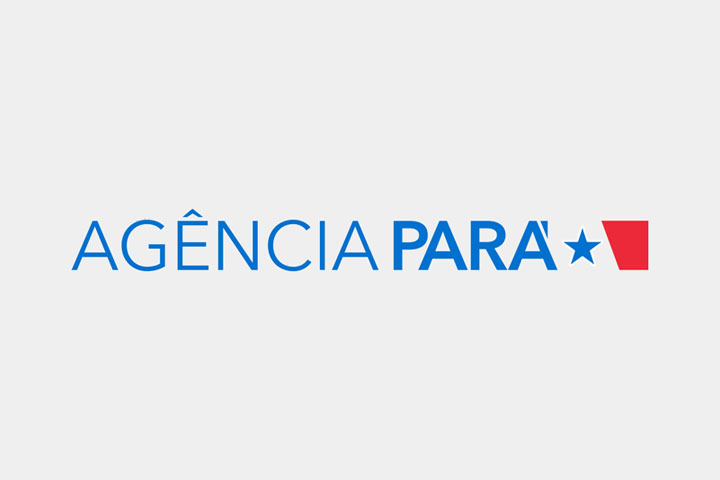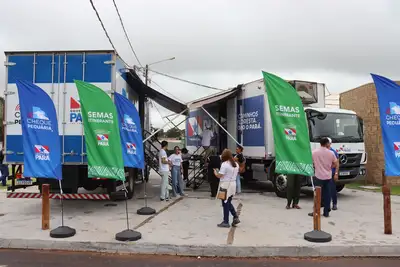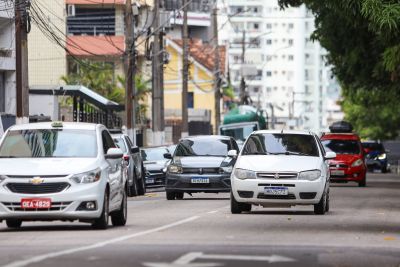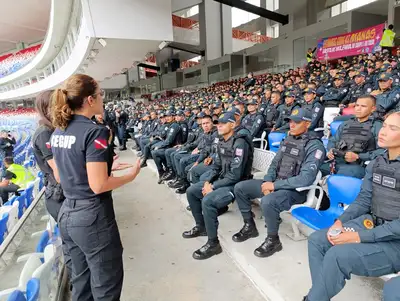Pará regulates Environmental Protection Quota and strengthens management of Conservation Units
The Environmental Protection Quota (CPA) corresponds to a representative title of 1 hectare of Integral Protection UC and can be acquired for both compensatory and non-compensatory purposes.
The Government of Pará published, in the Official State Gazette (DOE) last Wednesday (23), Decree No. 4,613, which regulates the implementation of the Environmental Protection Quota (CPA). The legal instrument aims to strengthen the financing of the Conservation Units (UCs) of the Forest Development and Biodiversity Institute (Ideflor-Bio), through fundraising from individuals and legal entities interested in contributing to the preservation of Pará's biodiversity.
The CPA corresponds to a representative title of 1 hectare of Integral Protection UC and can be acquired for both compensatory and non-compensatory purposes. The measure represents a new front of financial sustainability for the protected areas that are part of the State System of Conservation Units of Nature (Seuc), managed by Ideflor-Bio.
“Today's DOE [day 23] publishes decree 4,613 that regulates article 18 of State Law 6,745/2005 and provides for the Environmental Protection Quota. This decree is very important for the maintenance of our UCs and for the institutional strengthening of Ideflor-Bio,” said the president of the Institute, Nilson Pinto. He also highlighted the technical work carried out. “Congratulations to all who contributed to the formulation of this measure, especially the teams from Ideflor-Bio, Semas [State Secretariat for the Environment and Sustainability], and PGE [Attorney General's Office], who were involved in its preparation,” he emphasized.
Acquisition - The CPAs can be acquired in two modalities: the compensatory allows for the compensation of the legal reserve liability, as provided for in the Brazilian Forest Code (CFB), to be made in the Pará UCs. The Non-Compensatory, which has an exclusively voluntary nature and cannot be used for legal reserve compensation purposes. The unit price will be established in a specific act of Ideflor-Bio, with the non-compensatory modality costing 60% of the value of the compensatory.
The acquisition of the CPA will also involve a contract valid for 15 years, which can be renewed. The decree guarantees the purchaser environmental regularity during the term of the contract, provided they are compliant. The funds raised will be deposited in the State Fund for Forest Development (Fundeflor) and used for actions related to the creation, maintenance, and restoration of the UCs.
In addition, Ideflor-Bio will be responsible for developing and managing a computerized system to monitor operations involving CPAs. This system should be integrated with other state environmental systems, ensuring transparency, traceability, and public control of all stages of the process.
Milestone - Among the main objectives of the initiative are to encourage the recovery of native vegetation, strengthen decentralized environmental financing, and expand legal alternatives for environmental compensation. The regulation also prohibits the use of CPAs for the compensation of Permanent Preservation Areas (APP) and does not allow their transfer between third parties.
For the president of Ideflor-Bio, the creation of the CPA is a milestone in Pará's environmental policy. “With this decree, economic production becomes a direct ally of environmental protection
,” said Nilson Pinto. With the regulation, the State now has a modern and effective tool to reconcile rural development and environmental conservation in one of the planet's most strategic biomes.











